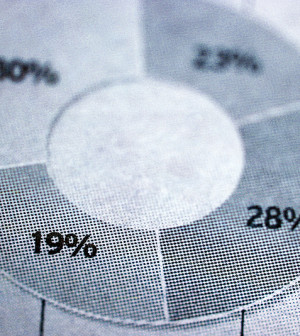- Could Your Grocery Store Meat Be Causing Recurring UTIs?
- Are You Making This Expensive Thermostat Error This Winter?
- Recognizing the Signs of Hypothyroidism
- 10 Strategies to Overcome Insomnia
- Could Artificial Sweeteners Be Aging the Brain Faster?
- Techniques for Soothing Your Nervous System
- Does the Water in Your House Smell Funny? Here’s Why
- Can a Daily Dose of Apple Cider Vinegar Actually Aid Weight Loss?
- 6 Health Beverages That Can Actually Spike Your Blood Sugar
- Treatment Options for Social Anxiety Disorder
Health Highlights: Oct. 27, 2016

Here are some of the latest health and medical news developments, compiled by the editors of HealthDay:
EpiPen Competitor Will be Available Early Next Year
The Auvi-Q epinephrine autoinjector will be reintroduced to the U.S. market early next year, drug company Kaleo announced Wednesday.
The Auvi-Q will provide a less-expensive alternative to Mylan’s EpiPen, for which the cost of standard two-pack rose from about $100 in 2009 to about $600 this year, CNN reported.
Both products are used to treat life-threatening allergic reactions.
But the Auvi-Q may face some hurdles in its return to the market because it was recalled in 2015 due to concerns that it did not deliver an accurate dosage of epinephrine, CNN reported.
—–
Teens With DNA From Three People Are Healthy; Study
Teens born with DNA from three people are healthy, researchers say.
The 17 were born after an experimental infertility treatment that gave them DNA from their mother, father and an egg donor, the Associated Press reported.
The teens, ages 13-18, have no signs of unusual health problems and are doing well in school, according to embryologist Jacques Cohen of the Institute for Reproductive Medicine & Science at Saint Barnabas in Livingston, N.J., where the infertility treatment was conducted.
The study was published in the journal Reproductive BioMedicine Online.
The treatment is no longer used, but the study is timely with the birth last month the first baby born from a different procedure that also mixed DNA from three people, the AP reported.
Instead of treating infertility, the new treatment is meant to prevent children from inheriting harmful genes from the mother. However, some experts are concerned about its long-term safety.
Copyright © 2026 HealthDay. All rights reserved.










